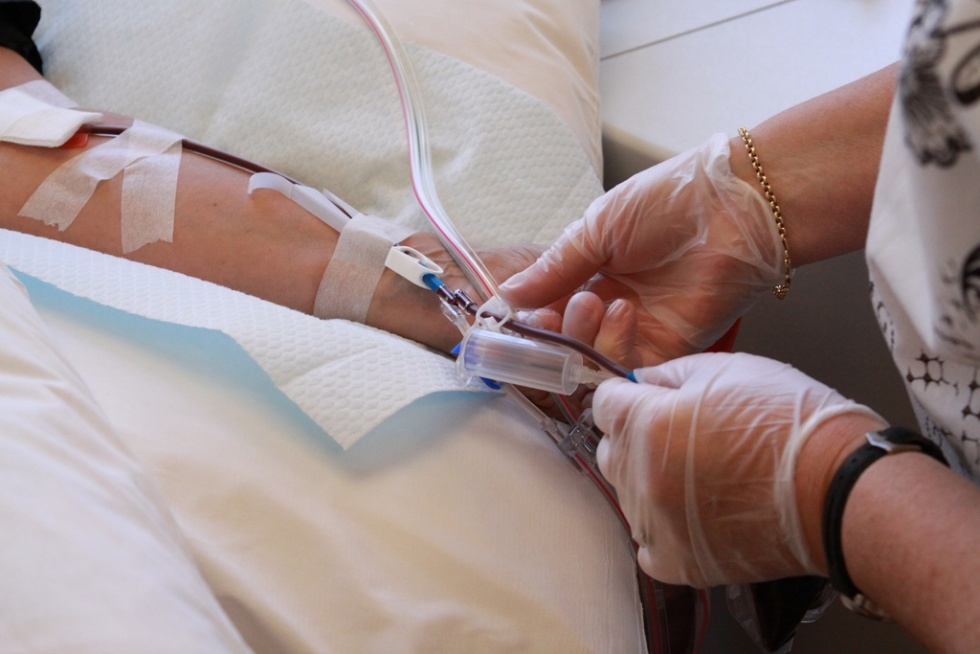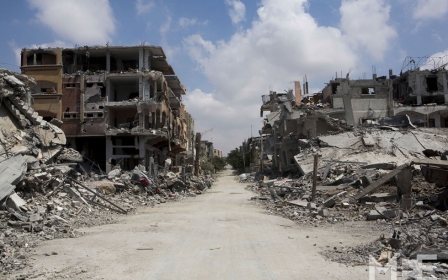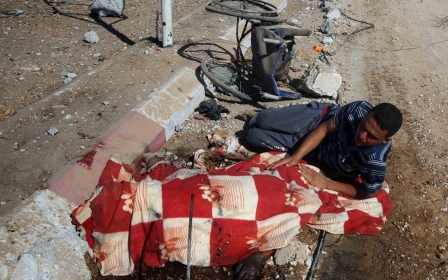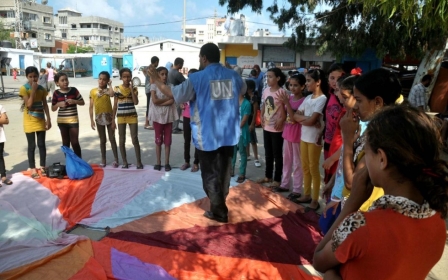Gazans sick with Thalassemia want to be a priority

GAZA CITY - Under normal circumstances, Ibrahim Abdullah receives new blood every three weeks. But, because of the war in Gaza, he has only had two transfusions in 2 months. While the truce presents some hope to him, Gazan hospitals have urgent cases to cope with, and Thalassemia patients like him are not among them.
Thalassemia is an inherited autosomal-recessive blood disease, usually caused by the destruction of red blood cells. The disease is prevalent among Mediterranean people, caused by a faulty synthesis of hemoglobin (red cells bearing oxygen) or missing chromosomes affecting how the body produces hemoglobin resulting in a form of microcytic anaemia that requires patients to undergo blood transfusions in order to survive.
Abdullah has been unable to reach the hospital - but now, with the ceasefire, he has a chance. “It was a miracle that I managed to call a nearby hospital which informed me they would send an ambulance out for me and other three patients.”
The patients waited, but no ambulance came. Abdullah called the hospital again, but was told that they couldn’t send an ambulance.
“I urged them, that we are also like those injured by Israel’s missiles and that we would die too if we didn’t receive a transfusion and dialysis,” said Abdullah.
But that didn’t change the reality on the ground and no taxis were available anywhere, he explained.
He was standing in the middle of the road, waiting for any car that could take him to the Gaza-European hospital in the southern Gaza Strip, when he saw a bus transferring doctors to the hospital.
“The doctors understood and they let me on board - but many patients needing long-term treatment didn’t get this chance,” he said, sharing his experience in the war in the past days.
“The risk is that many of over 300 patients in Gaza will die if not given access to hospitals,” explained Dr Bayan al-Saqqa, head of the Blood Disease Department at Shifa Hospital. Israel knows these patients need regular treatment.
The patients are treated by transfusion and dialysis, removing the overload of iron in their blood, he said.
As a result of the war, stocks are low. Doctors can only provide half the neccesary amount of even essential medications: “Instead of 6 boxes of tablets, we get only 3,” said Abdullah, a thin man who seemed to be at a loss of what to do next.
Dr Saqqa said that any major case of inherited Thalassemia requires frequent blood transfers once every three to four weeks, for the rest of the patient’s life.
In Gaza, courts set a condition that for each couple who wants to marry, one of the partners is obliged to be tested as Thalassemia free. Otherwise, if both partners carry the gene, the judge will not allow the marriage. This legal step was taken some years ago, to show the risk of inheritance and reduce the prevalence of Thalassemia as much as possible.
At Gaza hospitals, there is an urgent need for blood for those injured from Israel’s attacks, causing high demand for the already-short supplies. Gaza hospitals called on people for more blood donations and hundreds of people still rushed to donate, despite the obstacles.
Thalassemia patients are scattered throughout the Gaza Strip, and over the last two months of Israeli attacks, only three hospitals have the facilities to offer treatment to more than 300 people among the 1.8 million inhabitants of Gaza.
Dr Saqqa confirmed that during the war, it was enormously difficult to get patients in to receive transfusions.
Extreme conditions caused by Israel’s war have put Thalassemia patients in a position where they must take extreme measures if they want to survive. Someone like Ibrahim risked his life, exposing himself outside to Israeli artillery shelling - standing at one of Khan Younis’ most dangerous locations, the eastern line - just to flag down a bus full of doctors to get to the hospital.
Doctors say that there are 70 families who have members with Thalassemia that had to flee their homes in Jabaliya, Beit Hanoun and Shejaiya. Now they are seeking shelter at UN schools. Four of the Thalassemia patients have been killed.
On the first day of the ceasefire, Abdullah could access the hospital, but the hospital is overwhelmed and medications are unavailable. Israel said as part of the ceasefire it would allow humanitarian supplies, so he hopes that his medications are forthcoming.
But others don’t have that option and must silently face complications, such as iron overload, bone deformities and cardiovascular illness. It causes pain for Abdullah and his fellow patients to know that they are not a priority when hospitals are overcrowded.
Abdullah says the medications he receives from hospital can’t meet his needs - he makes an appeal through Middle East Eye before he becomes victim too.
“We appeal to the world, please rescue us. We want to live.”
Middle East Eye propose une couverture et une analyse indépendantes et incomparables du Moyen-Orient, de l’Afrique du Nord et d’autres régions du monde. Pour en savoir plus sur la reprise de ce contenu et les frais qui s’appliquent, veuillez remplir ce formulaire [en anglais]. Pour en savoir plus sur MEE, cliquez ici [en anglais].




